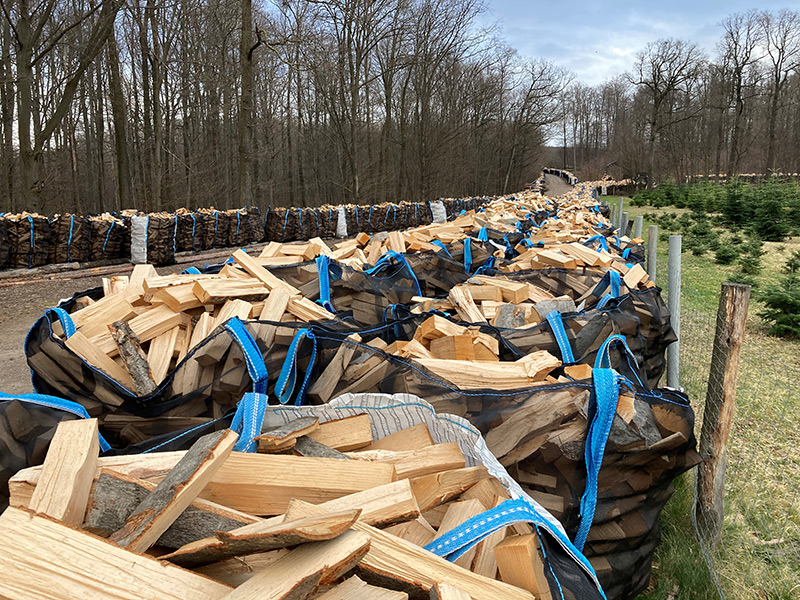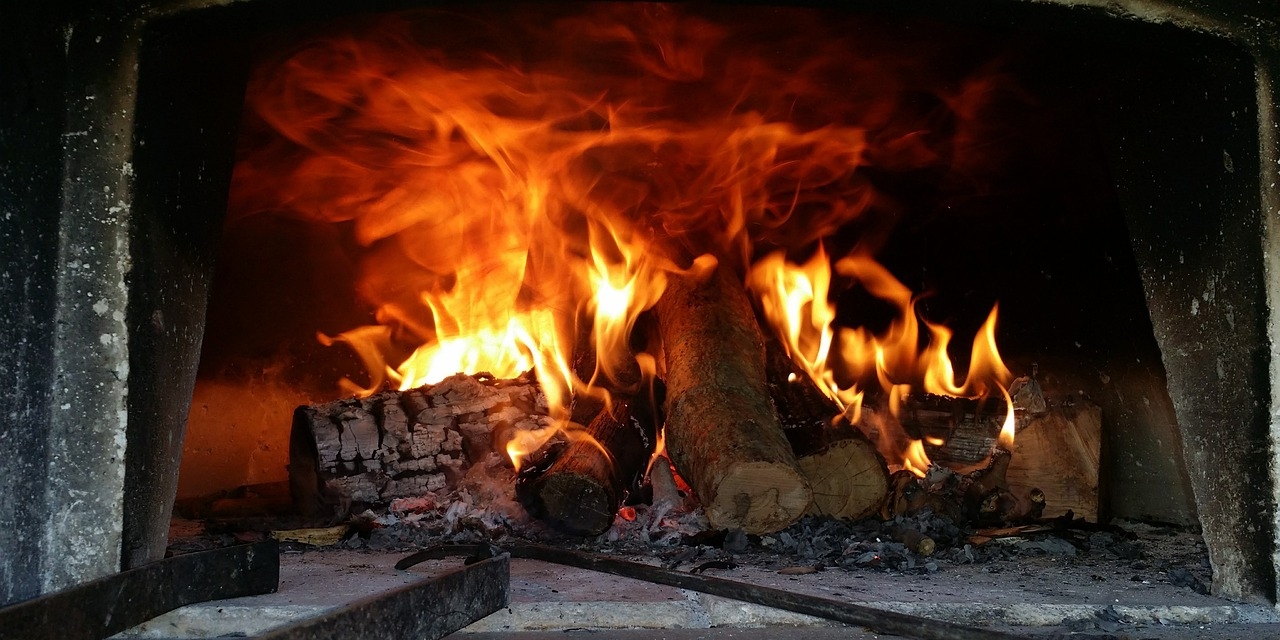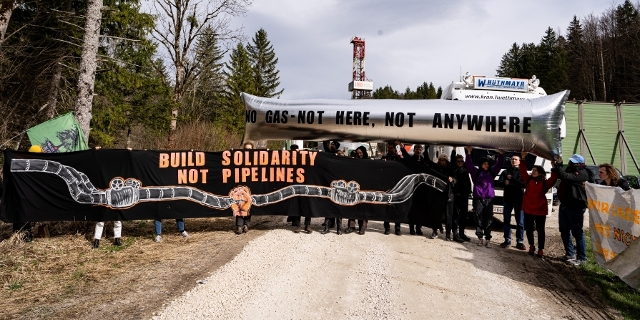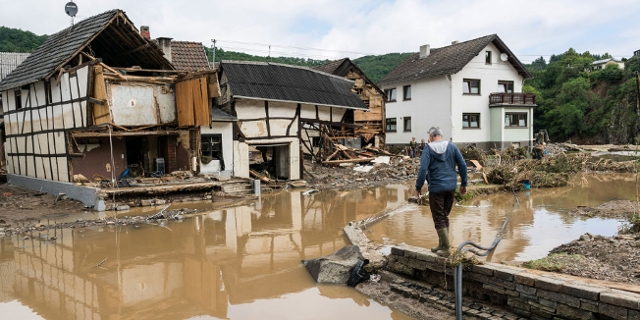A Burning Issue Turns Toxic
There is a debate rumbling away in the UK about the environmental and health impact of wood-burning that I think is worth mentioning, because it is a non-issue here in Austria. In fact while Britain is discouraging wood-burning, Austria is encouraging it. What is all that about?
Wood stoves 750 more polluting than a truck
I want to start with a fact, quoted by George Monbiot, that I find astounding. Recent research has shown that a modern, approved, eco-friendly wood burner produces 750 times as many fine particulates as a heavy goods vehicle.
I find that so surprising because while I would worry about the health implications of living near a busy road, I’ve always found the smell of wood-smoke somehow romantic. It seems evocative on an innocent world where life was slower and less polluted.
How wrong I have been!
Although less than 10% of households in the UK have wood burning stoves, statistics show that those stoves release more small particulates than all the vehicles on all of the roads.
In other words we need to talk about wood smoke.
„Wood smoke is linked to all sorts of diseases“
Wood-smoke pollution is hugely dangerous, says Kirsten de Vos of the campaign group Mums For Lungs: “Breathing in wood smoke is linked to all sorts of diseases, including lung disease, dementia, problems with cognition, all sorts of things,” she told me. “And as Mum’s For Lungs, we’re particularly concerned about the impact on children’s health. And I don’t think anybody would want to breathe in wood smoke knowing that to even affect that unborn child."

Radio FM4 / Chris Cummins
Wood burning remains uncontroversial in Austria
In Britain burning wood to heat your house has become a big political issue in recent months. In early December Professor Chris Whitty, the chief medical officer for England, released a report that showed that “Ecodesign” wood burning stoves produce 450 times more toxic air pollution than gas central heating. The older models, banned from sale but still used in many homes, create a whopping 3,700 times as much pollution.
The UK Government vs the Wood Burners
With such as high-profile government report making headlines, the government itself felt compelled to react, explains our London correspondent Nina-Maria Potts. “The government wants to phase out the sale of new woodstoves by 2027 and then, eventually, the use of wood burners. The caveat is, unless they’re the only source of heat in your home. They want wood burning stoves labelled as harmful, and they want to give local councils the power to stop unlawful burning.”
In big cities such as London and Bristol there are limits on the sort of stoves you can use and the sort of wood you can burn and there are hefty fines for anyone who ignores them.
This is of course controversial. Nothing gets right-wing pundits a-scribbling faster than health and safety red-tape. The wood-burners are often Tory voters and yet a Tory government seems prepared to act against them. Why? It seems the facts are too glaring to ignore.
Wood Burning Up, Pollution Up
Chris Whitty was pretty clear on his thoughts on the implications of wood smoke in Britain. “Air pollution causes problems from the time before people are born all the way through till their last day on Earth,” he wrote in his report. “Small particle pollution is the most dangerous to health and that produced by wood burning increased by more than a third from 2010 to 2020 in England."
That’s interesting; because wood burning is increasing in Austria too, but it is a practice that is promoted rather than discouraged by the government where a subsidy system is still in place to encourage the switch from fossil fuel to biomass heating systems. It’s interesting having a foot in two countries and cultures sometimes.
There will be technical differences between Austrian wood heating systems and British „eco“ stoves, and if you have facts to highlight these differences I’m all ears. But it still might be worth paying attention to developments in Britain. Because we’ve been down the route of false environmental responses before. It was government subsidies that helped drivers switch from petrol to more air polluting diesel in the 1990s because diesel has slightly lower carbon emissions.
If you are thinking of switching to heating with wood on environmental grounds, it might be worth looking before you leap.
„We have a duty to acknowledge our mistakes“
I’d been following these developments with great interest, partly because my parents have a wood-burning stove (which they love) and also because one of Britain’s most thoughtful environmental journalists, George Monbiot, had published a passionate Mea Culpa on the subject in The Guardian.
“Even fossil fuels, terrible as their impact is, are less damaging than the public health disaster to which I contributed,” he wrote, “and to which other well-meaning people still contribute. We have a duty, to ourselves and others, to acknowledge our mistakes.”
Enough Information
We can forgive George, indeed we can forgive anyone (yes Mum & Dad) for installing wood burning systems. The immense fine particle pollution they cause has not been well advertised.
Across Britain responses to the new anti-wood-burning rules have been varied to say the least, reports Nina-Maria Potts:
“Some people say the reports on air pollution has basically changed their mind and that they are actively looking for other ways to heat their houses. Ethanol fires, for example. Others say that having a wood burning stove has been an absolute godsend because it’s kept bills down and kept them warm. And, you know, I think there’s also a group that have spent money getting these wood burning stoves in, and I think they feel somewhat betrayed.”
„A Diesel Truck In Your Living Room“
A lot of smoke from wood-burners goes out of the chimney and poisons your neighbours, but there are indoor pollution risks too, points out George Monbiot:
„Every time you open the stove door to refuel, your home is flooded with tiny particulates, accompanied by other toxins, including benzene, formaldehyde and polycyclic aromatic hydrocarbons, pushing pollution levels way above World Health Organization guidelines.“
It is understandable that this is uncomfortable reading. Monbiot estimates he spent aroudn 40,000 euros renovating his house to be heated by wood before realizing it had been a toxic mistake.
“I am sorry that people have had them, you know, installed and now feel they can’t use them,” says Kirsten de Vos of Mums For Lungs. But, you know, the science is really clear. That’s terrible for health. We shouldn’t be burning wood. It’s not an environmentally friendly thing to do. It’s releasing CO2 back into the atmosphere. The average person just has no idea it is as bad as smoking. It’s as bad as having a diesel truck in your living room. And who would want to do that?”
That’s the second crucial issue, points out forest expert Matthias Schickhofer. The carbon cycle is not a round. It takes a few minutes to burn a log but it takes decades or centuries for a new tree to grow to maturity and reabsorb all the carbon released in the burning process.
We are all looking for ways out of our fossil fuel dependency, but investing in a new wood heating system in 2023, in whichever country you live, is surely a false path to tread.
Publiziert am 21.03.2023




















